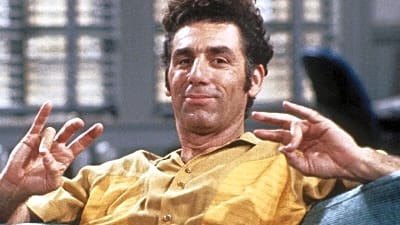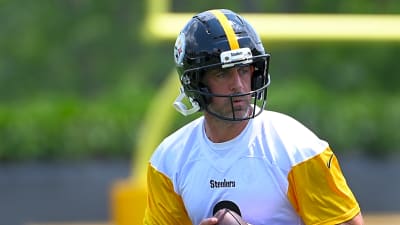
Should the Canadiens sign Lane Hutson now? Or wait a year, once his entry-level contract expires? There are two schools of thought on the subject.
First, there are those who want to sign him now. The guy’s on a roll and there’s a good chance we’ll see him reach new heights in 2025-2026, a year in which he’ll start on the first powerplay and a year in which Ivan Demidov will be there from Day 1.
And with the ceiling rising, signing him now for the long term might make sense. That’s my point of view, anyway.
But there’s also the argument that waiting might bring the price down. He’s not likely to win the Norris, he won’t win the Calder again, and 66 points is a big mark to match.
Basically, we can be afraid of the second-year jinx.
To get your head around it, you might ask: what did the other Calder winners do when their entry contracts expired?
Let’s take a look at the recent winners… except Connor Bedard, who is still on his entry contract. And he’s had a miserable second year with the Hawks, by the way.
People criticizing Connor Bedard that he’s been a “bust” so far in his first 2 season in the #NHL and that he’s overhyped….
For comparison, look at Nathan MacKinnon’s first 4 years in the league. His first two years were worse than Bedard’s and he had help….smdh #Blackhawks pic.twitter.com/GlAW51Q7lS
– AJB (@Arjun_AJB15) March 24, 2025
In 2023, Matthew Beniers won the Calder. A year later, in the summer of 2024, he signed a seven-year contract valued at $7.14M. Like Hutson, he was coming out of the NCAA and had burned through a contract year the year before winning the Calder.
In 2022, defenseman Moritz Seider won. And two years later, the Red Wings gave him an eight-year contract that pays him $8.55 million per season.
In 2021? Kirill Kaprizov won, but at age 24. His entry-level contract had already expired, and he signed a five-year deal (to reach autonomy quickly) that counts for $9 million per campaign.
In 2020, Cale Makar (another defenseman) won the Calder. And in July 2021, the Avalanche offered him $9 million a year for six years. He waited until the end of his entry-level contract to sign.
“Evan Bouchard is second to Cale Makar for the best defenseman in the league.”
O-Dog has a scorching hot take and claims Bouchard is the second best defenseman in the NHL behind Makar.#LetsGoOilers pic.twitter.com/i6px4n2Qem
– OverDrive (@OverDrive1050) June 5, 2025
2019? Elias Pettersson. And here we finally have a case of a player who signed a bridge contract for $7.35M per year over three years, from 2021 to 2024. That’s still quite a bridge.
And since then? He signed for $92.8 million, or $11.6 million a year for eight years.
The 2018 winner is Mathew Barzal. More than two years after winning the Calder, he signed a three-year, $21 million bridge contract. And then he signed for eight years and $9.15M annually.
That’s his current contract.
Auston Matthews in 2017? He signed a five-year contract at $11.634 M per year. But it was his choice and it was for the right to become a free agent sooner.
Today, he earns $13.25 million a year.
Artemi Panarin won at age 24 in 2016, which distorts the data. He signed a two-year contract at $6M a year, but it was to become an unrestricted free agent as quickly as possible.
And it paid off with the Rangers.
Your Calder Memorial Trophy winner, Artemi Panarin. #Blackhawks pic.twitter.com/9SIdu9DUUY
– Chris Kuc (@ChrisKuc) June 22, 2016
Before that, there was less of a trend. Aaron Ekblad, Nathan MacKinnon, Jeff Skinner and Tyler Myers were quick to sign long-term, but Jonathan Huberdeau and Gabriel Landeskog signed bridge contracts before signing long ones.
That’s the picture over the past 15 years.
So, basically, if the trend continues, Lane Hutson will sign long-term. And if he’s a man of his times, he’ll do as the most recent winners – and the Canadiens’ stars – have done, and avoid the bridge contract.
It remains to be seen whether he’ll sign this summer or wait. Because, as a general rule, in recent years, many Calder winners have signed at the end of their entry-level contract, not necessarily a year before.
The Calder to Lane Hutson: it wasn’t even close, and it wasn’t supposed to be either. pic.twitter.com/I664XVWAcz
– Nicolas Cloutier (@NCloutierTVA) June 10, 2025
overtime
– Interesting.
Gilles Villeneuve’s legacy told by those closest to him https://t.co/iM1KErxrd9
– Radio-Canada Sports (@RC_Sports) June 10, 2025
– Logical.
Luke Cavallin named playoff MVP
The Lions goalie won 15 of his 20 playoff outings, maintaining a goals-against average of 1.53 and a save percentage of .948.
Congrats, Cavy!
pic.twitter.com/vq7czARPJM
– xy – Trois-Rivières Lions (@Lions3r) June 10, 2025
– Too bad.
Hopefully he can get another chance to shine elsewhere. https://t.co/FiAl0cAQ4U
– Passion MLB (@passion_mlb) June 10, 2025
More must-reads:
- Connor Hellebuyck's NHL MVP win a rarity for goalies, even if it shouldn't be
- A win-win? Grading the Chris Kreider trade to Ducks
- The '50-goal NHL seasons since 2000-01' quiz
Customize Your Newsletter
 +
+
Get the latest news and rumors, customized to your favorite sports and teams. Emailed daily. Always free!









